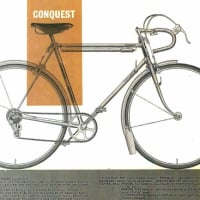We'd like to remind Forumites to please avoid political debate on the Forum... Read More »
📨 Have you signed up to the Forum's new Email Digest yet? Get a selection of trending threads sent straight to your inbox daily, weekly or monthly!
Put unleaded petrol in my diesel car
Comments
-
I've done it twice! Once I completely filled my Tdci Mondeo from empty with unleaded. The car started to lose power after 5-6 miles and I pulled over, checked the receipt, and slapped my head several times. Called RAC, taken to nearby garage (it was a Sunday) and had the tank drained and the system purged. Cost me £200 plus the full tank I lost, but I did a further 30k odd miles in the car and it was fine. Good thing was that I spotted it early. (My excuse - guy pulled up at the next pump on a proper 1960s Bonneville, and we had a chat while I was getting ready to fill up.)
Second time I put about 10 litres of unleaded in the tank of a diesel Discovery. I realised my mistake, did the rest of the fill (about 50 litres) with diesel and drove carefully home. Truck drove fine. I filled up after about 30 miles, and then same again, to reduce the % of unleaded as far as possible. It then went to France a couple of days later and towed a caravan about 1500 miles in 30C heat. Again, no problems in the time I had it afterwards.
The key is not to drive it (or stop as soon as you realise) as the damage is done in the engine, not the fuel tank.
Incidentally, I once rode my single-cylinder motorbike home about 10 miles on a 50/50 mix, after I had topped up with diesel after being awake about 30 hours straight. It made it, although the smoke screen was a sight to behold.If someone is nice to you but rude to the waiter, they are not a nice person.0 -
Not common rail (modern) cars, but I used to put petrol in my diesels to winterise them when running alternative fuels.
Try and find out if the fuel tank can be accessed from inside the car (under the rear seat or a panel on the boot floor). If it can, open it, and syphon out from there. Then fill up with diesel. Run it for a while then top up again.0 -
A few years ago my Lovely Cousin managed to fill our Merc diesel with petrol. Luckily our son realised what she had done and told me. On inspection I found we had been incredibly lucky and the petrol had got as far as the fuel filter under the bonnet, but not reached the injectors because the filling station was less than a mile from home.
I got the petrol/contaminant out using a slave electric fuel pump, similar to the old SU pumps fitted to Minis etcetera, and rigged it up with cables and a switch to the battery, and plastic fuel pipes.
The latter were small enough to get past the anti-syphon devices in the fuel filler neck, and I shoved it is as deep as I could go with the other end in as many fuel containers as I could scrounge.
I also turned the engine over with the fuel lines from the engine driven pump to injectors disconnected to flush as much out as I could, and replaced the fuel filter as well.
I then put 10 or so litres of diesel back in the car, bounced up and down, and then repeated the process above.
As I said, we were lucky and very little neat petrol got into the engine, if any, and the rest was as heavily swamped with diesel as possible.
The car ran for many years without problems and as far as I know is still being driven regularly.
The fuel pump and other bits cost less than £30 quid from a local car accessory shop, so it was much cheaper than me paying someone else to do it. It did take ages to empty the tank though.
I put the petrol-with-diesel through our old car a few litres at a time for every tank full of petrol to get rid of it.
Good luck with your endeavours, but as others have said, you may already have done some damage due to reduced or lack of lubrication.I married my cousin. I had to...I don't have a sister. All my screwdrivers are cordless."You're Safety Is My Primary Concern Dear" - Laks0
All my screwdrivers are cordless."You're Safety Is My Primary Concern Dear" - Laks0 -
Not common rail (modern) cars, but I used to put petrol in my diesels to winterise them when running alternative fuels.
That used to be standard practice in the haulage industry once upon a time to prevent the diesel thickening in sub-zero temperatures, rendered obsolete with the introduction of additives specifically to prevent this (in the 70s I think).0 -
Not that it really matters, but I'm pretty sure it was the 80s. The Winter of 86 / 87 had some very cold weather, and diesels, and heating systems were "waxing up". They changed the mix after.NaughtiusMaximus wrote: »That used to be standard practice in the haulage industry once upon a time to prevent the diesel thickening in sub-zero temperatures, rendered obsolete with the introduction of additives specifically to prevent this (in the 70s I think).0
This discussion has been closed.
Confirm your email address to Create Threads and Reply

Categories
- All Categories
- 351.6K Banking & Borrowing
- 253.4K Reduce Debt & Boost Income
- 454K Spending & Discounts
- 244.6K Work, Benefits & Business
- 600K Mortgages, Homes & Bills
- 177.2K Life & Family
- 258.3K Travel & Transport
- 1.5M Hobbies & Leisure
- 16.2K Discuss & Feedback
- 37.6K Read-Only Boards





